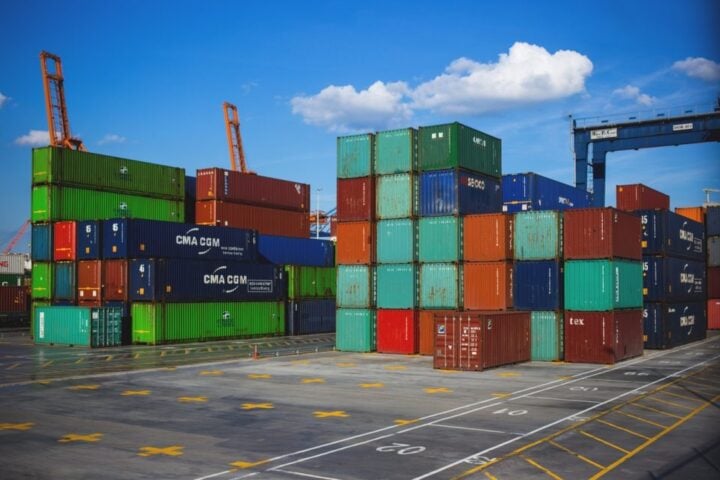China Implements Zero-Tariff Trade Policy for Nigeria, Kenya, and Other African Nations

China has announced the full implementation of a zero-tariff scheme for 53 African countries, including economic powerhouses like Nigeria, Ghana, and Kenya. This significant policy shift, formalized under the Changsha declaration and operating within the framework of the Forum on China-Africa Cooperation (FOCAC), aims to deepen economic cooperation and foster a shared future between China and the African continent. Previously, China's zero-tariff policy primarily benefited only 33 least-developed African nations. Now, it extends comprehensive "zero-tariff treatment for 100 percent of tariff lines" to all African countries maintaining diplomatic relations with Beijing, with the notable exclusion of Eswatini.
The initiative is a strategic move by China to welcome a wider array of quality products from Africa into its vast consumer market. It is anticipated to boost trade, enhance skills and technical training, and promote a broader range of African goods. For countries like Nigeria, this policy could significantly increase non-oil exports, particularly in agriculture, textiles, solid minerals, and manufactured goods, diversifying their export base and driving revenue. This comes at a crucial time, as some African nations face uncertainty regarding their continued access to the United States' African Growth and Opportunity Act (AGOA) and endure steep tariffs imposed by recent US policies.
Ghana, a key trading partner for China with bilateral trade volumes exceeding US$11 billion in 2024, has already formalized a specific 0% tariff agreement. This historic deal is expected to deliver substantial economic and developmental benefits, including increased export revenue for products like cocoa, cashew, shea butter, gold, and lithium, making them more competitive in the Chinese market. It is also poised to stimulate job creation, particularly in labor-intensive sectors, and support small and medium-sized enterprises (SMEs) by enhancing market opportunities. Furthermore, the agreement includes discussions on technology transfer and joint ventures, notably in the electric vehicle (EV) manufacturing sector, leveraging Ghana's strategic lithium deposits to potentially transform the nation into a hub for clean energy technology in West Africa.
Similarly, Kenya's President William Ruto has announced significant progress in bilateral trade negotiations with China, aiming for the removal of all tariffs on Kenyan products. This move is part of Kenya's strategy to address youth unemployment through value addition and agro-processing, expanding market access for products such as avocados, macadamia, tea, and coffee. President Ruto emphasized the need to balance the substantial trade deficit, where Kenya imports Ksh.600 billion worth of goods from China while exporting only Ksh.40 billion. China's foreign ministry has indicated that such initiatives are designed to help balance trade, acknowledging the heavy skew in favor of China, which had a surplus of Ksh.8 trillion last year.
Beyond direct economic advantages, China's zero-tariff policy carries significant strategic and geopolitical implications. It aligns with the broader objective of strengthening solidarity within the Global South, where China and Africa are considered important members and staunch forces. The Changsha declaration explicitly calls for collaborative efforts to build a community with a shared future for humankind, promote Belt and Road cooperation, and implement global development, security, and civilization initiatives. It also serves as a direct counter to what China and African nations perceive as unilateralism, protectionism, and economic bullying by certain countries, specifically urging the United States to resolve trade disputes through consultation based on equality and mutual benefit. China has also pledged support for the African Union's Agenda 2063, focusing on modernization and sustainable development, and aims to strengthen FOCAC initiatives, including the '2026 Year of People-to-People Exchanges'.
However, the transformative potential of this deal is viewed with a degree of caution by some. A Ghanaian perspective highlighted concerns about the inherently unequal economic, technological, and political relationship between China and African nations, suggesting that such "sweet deals" could deepen dependency rather than fostering balanced trade, potentially resembling "neo-colonialism in a modern wrapper." Critics also question whether the ease of exporting raw materials tariff-free to China might undermine motivation for local processing and value addition, thereby hindering job creation in domestic industries. Concerns were also raised about the risk of over-reliance on a single trading partner, potential environmental and social costs from increased resource extraction, and the possibility of weakening intra-African trade efforts like the African Continental Free Trade Area (AfCFTA). For these reasons, while acknowledging the immediate benefits, a pragmatic approach emphasizing diversified partnerships and robust domestic policies to ensure inclusive growth is deemed essential.










